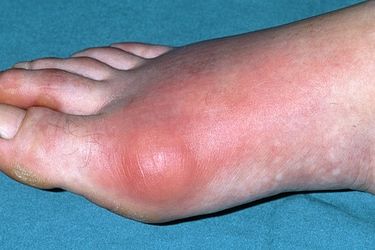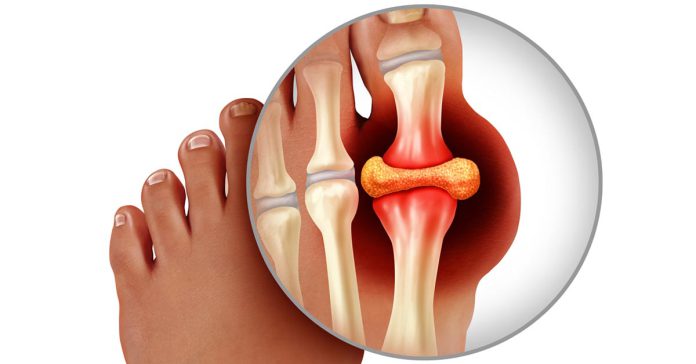Mencoret.com – What Are Gout Attack Symptoms? A gout attack causes pain and swelling in joints. It occurs when uric acid accumulates in the body. Uric acid is a waste product of the breakdown of purines in food and body tissues. It normally excretes in the urine, where it dissolves into the blood. In rare cases, gout can affect the hip or spinal cord. Symptoms of a gout attack may be more severe in some people than others.
The slower the gout attack, the more the joints are affected

People who have gout typically experience severe joint pain in the big toe, but it can also affect other joints. The pain is most intense during the first four to twelve hours after gout flares, but lingering discomfort can last for days or weeks. The later the gout attack, the more joints are affected. The affected joint may become swollen, tender, and warm. A gout attack may also cause a limited range of motion.
The primary diagnosis of gout depends on physical examination, x-rays, and lab tests. Because the disease can be caused by other diseases, the diagnosis of gout must be made using a combination of methods. X-rays, for example, may not show uric acid, but can reveal bone changes and a fluid collection in the joint. A blood test may be performed to check the uric acid level.
Some of the common symptoms of gout attacks

While the pain and swelling will subside within a week, the intensity and duration of the attack may last for several days. Symptoms of a gout attack include warmth, stiffness, redness, and tenderness. Some people may also experience fever, joint stiffness, or a red and swollen joint. The pain and swelling will vary between individuals. If the symptoms persist, you should see your doctor to determine the severity of your condition.
The National Institutes of Health states that hyperuricemia, or elevated levels of uric acid, is the major risk factor for gout. The disease is usually mild and can resolve on its own, but left untreated, it can result in permanent joint damage and kidney stones. In this case, treatment of gout is important, as treatment is crucial for long-term symptom relief. The sooner you seek treatment, the sooner the symptoms will begin to diminish.
The doctor will determine the excess uric acid in the body

The most important thing to remember when dealing with a gout attack is to visit your primary care physician as soon as possible. This doctor will run tests and diagnose whether there is an excess of uric acid in your body. If this is the case, you should consider reducing your intake of alcohol and drinking plenty of water. A low-purine diet is another good option. Avoiding alcohol and other substances that can cause an attack is also a good idea.
NSAIDs and nonsteroidal anti-inflammatory drugs can help you manage your gout flare-ups. These medications can also lower uric acid levels. A healthy diet and lifestyle habits will also help prevent future gout attacks. If you are taking medications for gout, make sure you consult a nutritionist for advice on your diet. Eat balanced meals, reduce your purine-rich foods, and exercise regularly.
In some cases, NSAIDs are not sufficient to treat gout

Anti-inflammatory drugs are a good way to manage gout symptoms, if they occur quickly. In some cases, NSAIDs aren’t enough to treat gout, so your primary care physician may prescribe high-dose medications for the duration of the flare. However, you should never wait until your symptoms are severe before seeking treatment. For this, you can keep an anti-inflammatory medication on hand at home and take it as soon as you notice the symptoms of gout.
Painful, hot, red and swollen joints are common gout attack symptoms. Some sufferers go weeks or even months without noticing any symptoms in between. The duration of each episode varies from one individual to another. People with gout may experience one episode every two to three years. Untreated gout can lead to more painful and longer attacks. They may also affect various joints in the body. For this reason, your primary care provider can refer you to a rheumatologist.










